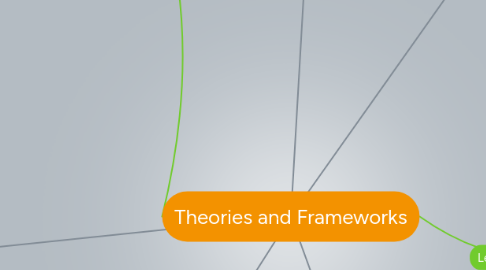
1. Social Construction of Technology
1.1. Technology does not determine human action; human action determines technology
1.1.1. Hold Project Kick-off Meeting
1.2. Acceptance/rejection of technology based on the social world
1.2.1. Establish Project Objective
1.2.2. Establish Project Scope
1.2.3. Map Requirements
1.2.4. Map Solution
1.2.5. Map Training Requirement
1.2.6. Review Project Scope
1.3. Theory and methodology (why do some technologies succeed and others don't?- analyze)
1.3.1. Determine Project Approach, Stages and Steps
1.3.2. Estimate Project Duration
1.3.3. Establish Resource Requirements
1.3.4. Prepare Project Schedule and Budget
1.3.5. Prepare Work breakdown structure
1.3.6. Document Success Criteria
1.3.7. Review Project Schedule
1.4. Relevant social groups
1.4.1. Users
1.4.2. Producers
1.5. Design flexibility
1.5.1. Establish Project Administration Procedures
1.5.2. Establish Quality Control Procedures
1.5.3. Establish Progress Control Procedures
1.5.4. Establish Change Control Procedures
1.5.5. Establish Issue Resolution Procedure
1.5.6. Review Project Control Procedures
1.6. Problems and Conflicts
1.6.1. Closure: problem solved or redefined?
2. TPACK
2.1. Teachers have different kinds of knowledge
2.1.1. Content (your subject matter)
2.1.2. Pedagogy (how to teach)
2.1.3. Technology (how to use it effectively in the classroom
2.2. The TPACK framework explores how these types of knowledge intersect and inform one another
2.2.1. Determine Project Approach, Stages and Steps
2.2.2. Estimate Project Duration
2.2.3. Establish Resource Requirements
2.2.4. Prepare Project Schedule and Budget
2.2.5. Prepare Work breakdown structure
2.2.6. Document Success Criteria
2.2.7. Review Project Schedule
2.3. A Venn diagram is used to represent these intersections
2.3.1. Users
2.3.2. Producers
2.4. TPACK emphasizes new types of knowledge that come from the overlap of the primary sources (circles)
2.4.1. Gives a new understanding to what we are trying to accomplish, what we can work on, and what we have available to us
3. Philosophy of Teachnology
3.1. Teachers explore their values and consider how they will approach technology in their teaching
3.1.1. Establish Project Objective
3.1.2. Establish Project Scope
3.1.3. Map Requirements
3.1.4. Map Solution
3.1.5. Map Training Requirement
3.1.6. Review Project Scope
3.2. Based in the framework of a philosophy of teaching, but focused on technology and its place in the classroom
3.2.1. Hold Project Kick-off Meeting
3.3. Based in the framework of a philosophy of teaching, but focused on technology and its place in the classroom
3.3.1. Hold Project Kick-off Meeting
3.4. Not just about technology in lessons, but also in professional development
3.4.1. Determine Project Approach, Stages and Steps
3.4.2. Estimate Project Duration
3.4.3. Establish Resource Requirements
3.4.4. Prepare Project Schedule and Budget
3.4.5. Prepare Work breakdown structure
3.4.6. Document Success Criteria
3.4.7. Review Project Schedule
3.5. Will likely grow and develop over time and with experience
3.5.1. Users
3.5.2. Producers
3.6. Important to consider in today's classrooms
3.6.1. Establish Project Administration Procedures
3.6.2. Establish Quality Control Procedures
3.6.3. Establish Progress Control Procedures
3.6.4. Establish Change Control Procedures
3.6.5. Establish Issue Resolution Procedure
3.6.6. Review Project Control Procedures
4. Behaviourism
4.1. Environment stimulus, processed by brain= learning
4.1.1. Recruit Project Sponsor
4.1.2. Recruit Project Manager
4.1.3. Review Related Projects and Lessons Learned
4.1.4. Prepare Project Initiation Plan
4.1.5. Brief the Initial Project Team
4.1.6. Review Project Kick-off Plans and Presentation Map
4.1.7. Hold Project Kick-off Meeting
4.2. Stimulus-response (repetition)
4.2.1. Operant conditioning
4.2.2. Punishment
4.2.3. Consequences
4.3. Practices
4.3.1. Modelling
4.3.2. Shaping
4.3.3. Cuing
4.3.4. Cuing
4.3.5. Drill and practice
4.3.6. Review Project Control Procedures
4.4. Direct instruction
4.4.1. Estimate Project Costs
4.4.2. Identify and Quantify Benefits
4.4.3. Determine Break-even Point
4.4.4. Analyze Risk
4.4.5. Review Business Case
4.5. By directly providing information and incentives/punishments, students will absorb knowledge- what are the consequences of this training?
4.5.1. Prepare Initiation Stage Assessment
4.5.2. Review Initiation Stage Assessment
4.5.3. Follow-Up Initiation Stage Assessment
4.5.4. Compile Project Initiation Report
5. Cognitivism
5.1. Environment stimulates mind which constructs learning
5.1.1. Prior knowledge is key
5.2. Memory models
5.2.1. Sensory
5.2.2. Short-term (working)
5.2.3. Long-term
5.2.4. Use mnemonic devices for recall
5.3. Motivation
5.3.1. Request Changes
5.3.2. Identify Alternative Solutions
5.3.3. Conduct Steering Committee Meeting
5.3.4. Document Change Responses
5.3.5. Implement Change(s)
5.4. Practice for retention
5.4.1. Identify Project Issues
5.4.2. Assess Impact of Issues
5.4.3. Assign Resources
5.4.4. Resolve Issue
5.5. Cognitive load
5.5.1. Can over or under-whelm working memory
5.5.2. Matters how things look and are organized
5.5.3. Teachers need to pay attention to how they present information and how much
5.6. Seriality and organization of information
5.6.1. Mind maps
5.6.2. Metaphors
6. Connectivism
6.1. learning is creating connections and developing a network
6.1.1. don't need to know; know where to look it up
6.1.2. knowledge is in diversity of opinions
6.1.3. ability to see connections between concepts/ideas etc. a fundamental skill
6.1.4. Teachers need to provide opportunities for students to explore and make connections
7. Constructivism
7.1. Learning happens by building connections through interacting with the environment
7.1.1. Recruit Project Sponsor
7.1.2. Recruit Project Manager
7.1.3. Review Related Projects and Lessons Learned
7.1.4. Prepare Project Initiation Plan
7.1.5. Brief the Initial Project Team
7.1.6. Review Project Kick-off Plans and Presentation Map
7.1.7. Hold Project Kick-off Meeting
7.2. Constructing knowledge based on one's experiences
7.2.1. Establish Project Objective
7.2.2. Establish Project Scope
7.2.3. Map Requirements
7.2.4. Map Solution
7.2.5. Map Training Requirement
7.2.6. Review Project Scope
7.3. Teacher as facilitator
7.3.1. project based
7.3.2. problem based
7.3.3. authentic tasks
7.3.4. discovery learning
7.3.5. collaborative
7.3.6. Vygotsky's zone of proximal development
7.3.7. Teachers need to support students in completing learning goals, slowly handing more responsibility to student
